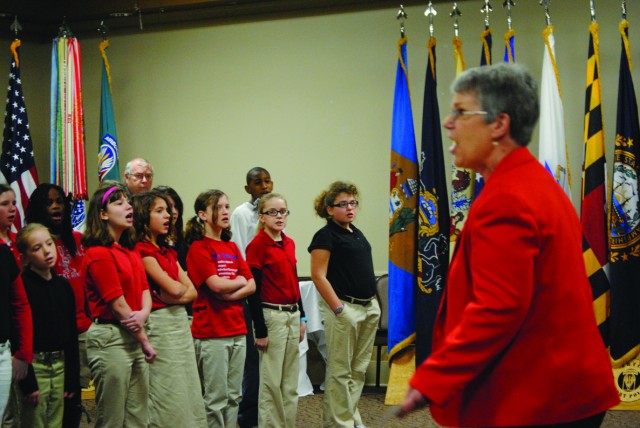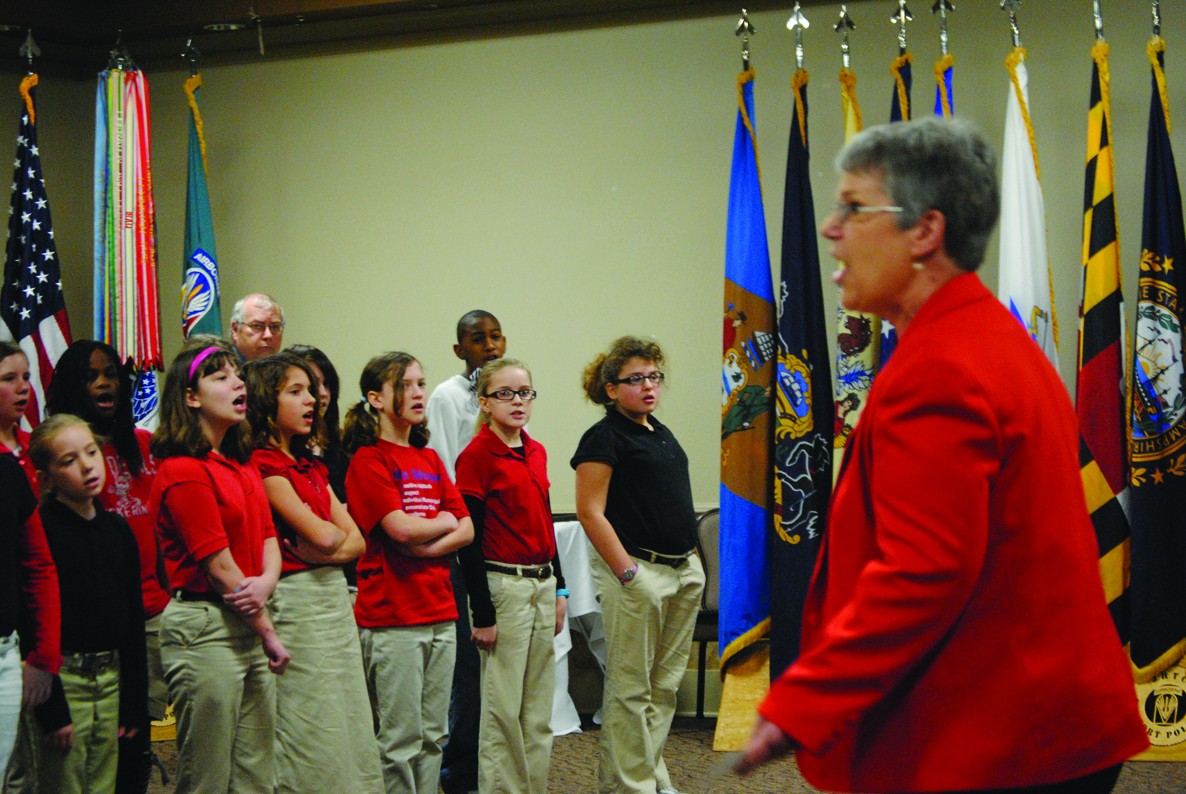FORT POLK, La. -- Imagine a life where laws prevented you from living where you wanted, sitting where you wanted and even going where you wanted. Any opposition to this law left you beaten, jailed or dead.
This was the daily life of Nathan Thomas, then a 19-year-old boy growing up in segregated Alabama in 1965. Forty-six years later, Thomas, a retired U.S. Army colonel, shared his experience Jan. 28 with Soldiers and Family members at the Warrior Community Center during a Martin Luther King Jr. observance.
The event, "Remember! Celebrate! Act! A day On, Not a Day Off!" was hosted by the 1st Maneuver Enhancement Brigade.
The atmosphere Thomas lived in during 1965 was volatile; filled with racial tension, hate and hostility. Although President Lyndon Johnson had signed the Civil Rights Act of 1964, ending Jim Crow Laws, which mandated all public facilities "separate but equal" for African-Americans, segregation remained in effect.
Attempts to integrate whites and African-Americans were met with resistance and often violence.
"I realized at that point in my life, America needed to change. What I saw was segregation. There were things I could not do, places I could not go," Thomas said. "It needed to change."
Thomas pledged his involvement in the Civil Rights Movement and was part of one of its most pivotal demonstrations, the "Selma-Montgomery marches."
He, along with 600 participants, marched from Selma, Ala., to Montgomery, protesting unfair voting practices, which involved using scare tactics and literacy tests to prevent African-Americans from using their right to vote.
Participants marched across the Edmund Pettus Bridge leading to Montgomery, and were met by state troopers armed with tear gas and nightsticks. Violence shortly ensued, leading Thomas and many demonstrators beaten and jailed.
"I had died many times in Montgomery, many times in Selma," Thomas said. "I witnessed the brutal attacks, the beatings - to a point that sometimes you didn't even know who you were."
The day, known as "Bloody Sunday," roused support for the Civil Rights Movement and eventually led to the Voting Rights Act of 1965, ending discrimination in voting practices by federal, state and local governments. "There was no mystique in what we did, we just had a lot of courage and a lot of faith," Thomas said.
"Believe it or not, we lived off pure faith that the day would be better, that our children would be better. We had to believe that because we had nothing else."
Thomas believes his generation gave others the opportunity to be where they are today. He said he wants others to validate that cause by doing something worthy. He believes people should be more involved in their communities, which was a part of Martin Luther King Jr.'s dream.
"Life was given so that you would have an opportunity," Thomas said. "Be invigorated in helping your community be what it should. That's what Dr. King would have been proud of; the idea to look deeper, take it personal and drive on to make it a better place."
Hearing a voice from the Civil Rights Movement moved some audience members. "It inspired me to hear the voice of someone who was actually there with Dr. Martin Luther King Jr. and it helped me see a more in-depth perspective of what they actually went through," said Shanna Gailes.
"It helped me to be more observant of the newer generations of our children and teaching them the legacy of what people in the Civil Rights Movement all gave."
After the speech, Brig. Gen. Clarence K.K. Chinn, commanding general, Joint Readiness Training Center and Fort Polk, thanked Thomas for his presence at Fort Polk and awarded him a plaque commemorating the ceremony. "I want to thank you for reminding us that one man or one woman can make a difference," he said.
Thomas also had a gift to give Fort Polk: A plaque commemorating Henry O. Flipper, the first African-American graduate of West Point. "The uniqueness of what you have, of watching your children together, watching them do things that my generation could never do, should always be a positive outlook to what the future can hold for us," he said.


Social Sharing